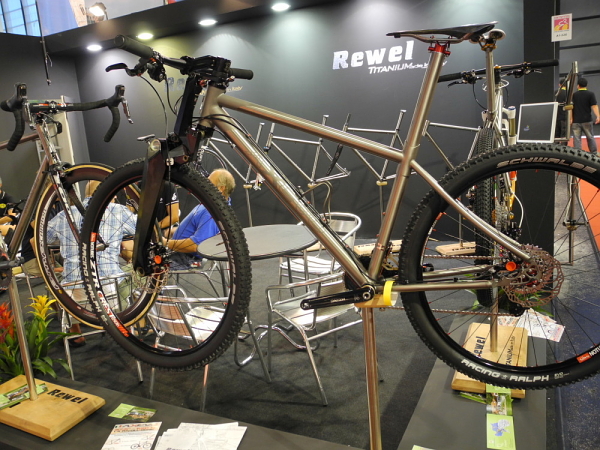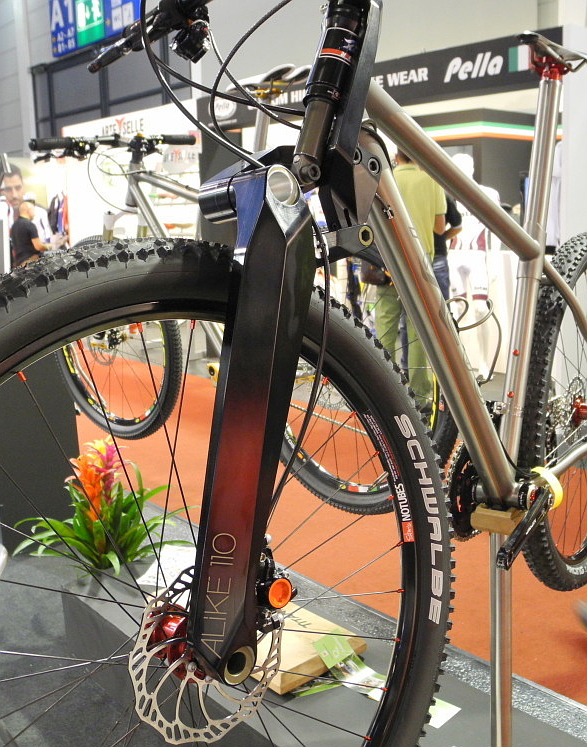Question: You run into the Alike 110 out there? Know anything about it? (Seen at MTBR.com.)
PS Like your FS Design… let me know when the prototype comes about.
Answer: It’s a wild-looking fork, but, unfortunately, that Alike 110 appears to be only a plastic prototype at this point.
Though rare, parallelogram forks have existed since the original Girvin, but they’ve never been able to get much traction in the market.
Partly, their failures can be attributed to problems with those early designs (wear, shock position, and some minor freakiness related to axle path), and the momentum that telescoping forks developed in those early years. But a lot has changed. The companies that make telescoping forks have all the OEM markets locked up, but that doesn’t explain why garage DIY types haven’t stepped up to bring the strangeness. You’d think a guy with a lathe somewhere in Northern California would have been showing off something similar to this by now. We’re certainly due for some good, old fashioned innovation.
So this Italian single-sided is still mostly imaginary, but here are a few reasons I think we could actually see something like this soon:
Big Wheels are a Game Changer – The Alike 110 pictured is on a 650b bike, but it’s 29ers that continue to drive a lot of innovation today. As 29ers become increasingly mainstream, they cause more and more people to rethink traditional designs. I’m convinced a big part of previously DH design elements making their way onto XC bikes–things like 15QR and 142mm rear axle spacing–were heavily spurred on by 29ers, which gave most companies the guaranteed additional sales necessary to invest in new things. When it comes to designs, big wheels continue to be prime instigators of change.
Cannondale’s Lefty – It’s been around for a long time now, proving itself a viable alternative and–most importantly–creating a fork (no pun intended) in suspension system development. Small as it is, the Lefty’s ecosystem of hubs makes other single-sided forks possible. Having two legs was one of the things that never made sense about previous linkage forks, but the long term existence of a viable single-sided fork helps make a linkage fork possible.
We Need It – Even if someone only makes three of these things, and the last owner ends up having to modify it to use bigger bearings or something, this kind of wacky stuff used to be part and parcel of mountain bike culture. While you’d be a fool to embrace every piece of ill-conceived garbage we once had to wade through downstairs at Interbike, we probably shouldn’t forget how guys like Keith Bontrager once resorted to the occasional dumpster dive in the name of innovation. Blame mountain bikes “selling out” or blame the reality of the current economy, but thinking outside the box by small companies just isn’t happening the way it once did. Plastic or not, it makes me smile to see out there designs like this fork.
(And thanks for the kind words about the suspension design! Development started way back in the Asylum days, and I’ll keep anyone interested posted here.)




